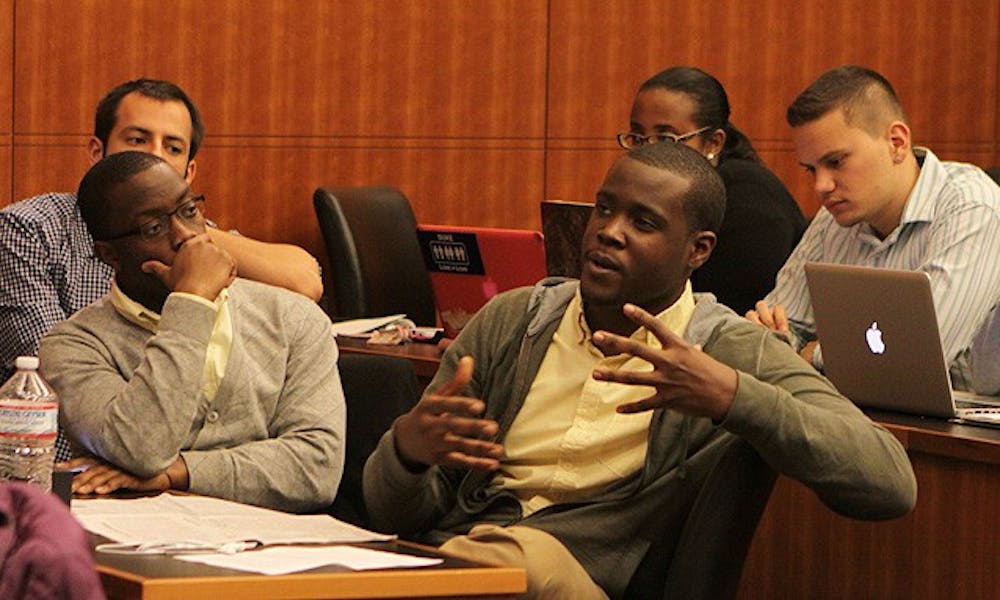Duke Student Government addressed the University’s lack of handicap-accessible buildings at its meeting Wednesday.
Currently disabled students cannot access certain academic buildings such as the Languages Building and several East and West campus residence halls, said sophomore Fedja Pavlovic, senator for residential life and dining. Pavlovic proposed a resolution calling for a 100 percent accessible West Campus for students with disabilities by 2022.
“This is going to be a long struggle to make the administration make a pledge to support the development of a completely accessible campus,” Pavlovic said. “But this should be a priority.”
Although Congress passed the Americans with Disabilities Act in 1990, which requires that universities as employers and private entities with public accommodations remove access barriers in cases where renovation is “readily achievable,” Duke was able to exempt some buildings from any major changes, said senior Lauren Blake, chair of the DSG commission of accessibility.
“Duke is an amazing place, but there are some students that cannot take advantage of all of the opportunities that Duke has to offer,” Blake said. “It is socially isolating and severely impacting their Duke experiences.”
The University did make some minor changes when forced to do so by the Justice Department in 2001, Blake said. Blake has collected over 200 signatures supporting a resolution asking for DSG support of this initiative. Students can also help by providing feedback to the disability management system about problems with current accessibility measures, like handicap push plates or elevators.
The Senate approved the resolution unanimously.
In other business:
Duke University Union requested $10,000 from DSG for a Duke Starter program that would allow students in groups of four or more to create an event open to the student body. DUU, DSG and the student body’s popular vote will determine the winning group, which will then receive a maximum of $15,000 to execute the project.
DSG President Pete Schork, a senior, updated the Senate about the University’s new medical withdrawal policies after meeting with Lee Baker, dean of academic affairs for Trinity College of Arts & Sciences and associate vice provost for undergraduate education.
“Our fear was that students might not know that depending on their situation, they may have multiple options,” Schork said. “When those options arise in legitimate and extreme medical circumstances, we want students to meet with their dean and talk through their options.”
Schork said he and Baker decided to change the policy’s language to reflect flexibility for students with extreme medical conditions, Schork said.
DSG has closed responses to the house model survey from the Fall and results will be released within the next week, Schork said. A total of 1,139 students participated in the survey—a response rate of about 38 percent.
DSG approved a resolution by unanimous consent to hold elections for the Young Trustee Feb. 10.
Get The Chronicle straight to your inbox
Signup for our weekly newsletter. Cancel at any time.

